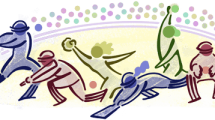Parental obesity is a hazard factor for obesity in offspring, with a higher probability for kids to be overweight or obese if in any event one of their parents is. Obese guardians are considered as risk factors for overweight/ stoutness of their offspring.
The relationship between overweight youngsters ‘and parental excess weight represents both gene and environment interactions. Our genes help determine body type and how the body stores and burns fat. But genes alone can’t explain the current obesity crisis. Because both genes and habits are passed down from one generation to the next, numerous individuals from a family may struggle with weight, says DR. KS KULAR, BARIATRIC SURGEON, MBBS, MS, F.M.A.S.
Along these lines, the expanding danger of adolescence or juvenile overweight in people with obese guardians may be because of their hereditary qualities or their living in a similar environment. Besides, youngsters usually imitate their parents. In this manner, dietary patterns and family lifestyle could have an impact on child eating behaviour.
Unfavourable parental eating patterns (including higher consumption of fried, fast foods, sweets) and a sedentary lifestyle such as low physical activity and prolonged TV and computer time may expand the danger of overweight and obesity in both parents and their children.
DR. KS KULAR, BARIATRIC SURGEON,also says, There is a parental contribution to the growing obesity problem among young children and teenagers. Youngsters are more likely to eat at least five servings of fruits and vegetables a day if their parents do. Oppositely, youngsters whose guardians eat fast food or drink soda are more likely to do likewise. Food advertising that targets children and youth has been linked to the increase in childhood obesity. Promoting by industries always objectifies girls and women, contributing to body dissatisfaction, eating disorders, low self-esteem and depression.
Both hereditary and environmental factors contribute to childhood obesity. Some environmental factors including parental overweight, shared family lifestyle, dietary habits, and financial status are linked to childhood overweight.
Activities described as lifestyle factors include doing sports, television consumption, or the use of computer games among others. Peer pressure, social convention and religious practices can all lead to determining behaviours related to obesity. A connection has been found between individual weight and friends’ and family weight gain. Juvenile weight is related to that of people of a similar age in the friend gathering. While spousal weight can likewise be connected, life partner decision may impact this. The physical outcomes, emotional well-being issues and victimization are associated with obesity in youngsters and teenagers.
An individual’s friend network may affect their weight. Adolescents are bound to put on weight if they have friends who are heavier than they are. Numerous overweight youth didn’t express familiarity with the long-term consequences of poor diet and being overweight, nor did they view their lifelong health as a concern. A person is more likely to become obese if a close friend or family member has put on certain pounds, even if the friend or relation lives many miles away.
Obesity is a genuine issue in our worldwide now, for adults as well as for children. In our general life, several youngsters are overweight and do not care about their weight and will simply eat anything they desire and do nothing about it. It has been believed that guardians feeding patterns are a major factor in whether a child is under or overweight. Senior author, Dr Clare Llewellyn from UCL, adds: “These results show that parents are not the ‘full story’ when it comes to a child’s weight, and blaming parents for being too controlling about feeding may be unfair.


























































